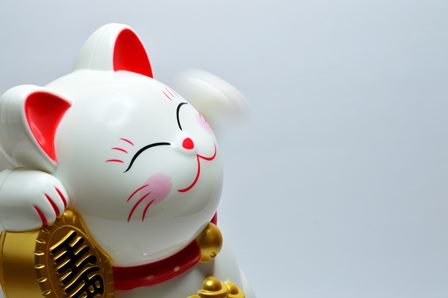
Sometimes my clients look at me with pleasant surprise and relief when I tell them that they can get their Feng Shui remedies at a local garden center or home décor store. Some have already been assuming that they will need to make a trip to Chinatown or go on line to look for exotic trinkets to satisfy their Feng Shui needs. This is never necessary.
Ordinary items can be used and in fact, the more inconspicuous the remedies, the better. The range of possible remedies is vast, depending on what the design flaw or problem is.
We can break down the types of Feng Shui problems into several major categories.
CATEGORY #1: Problems with qi (chi) flow.
Due to some design flaws, like having a front door aligned directly with a back door, the air currents that go from one end of a room to another will need to be buffered. This can be done with tables, chairs, lighting fixtures, live plants, partition screens or water features.
Common sense décor arrangements can fix many of these problems, without having to get wind chimes or bangles or any Chinese knick-knacks that might stick out like a sore thumb among conflicting design styles.
CATEGORY #2: The unseen energies.
A room might need a natural element added to balance the magnetic field of the room. The natural elements are water, wood, fire, earth, and metal. Depending on the size and function of the room, a perfect selection can be chosen that is neither expensive nor hard to find.
Water can be a literal water fountain or aquarium. Wood can be a live plant or an abundance of green color. Fire can be an accent light used frequently or a large display of red color in a décor item or art work. Earth can be represented with items made of stone, clay, or ceramics. Metal can be anything made of gold, silver, brass, bronze, iron or steel. If you look around your own dwelling, you can easily find items which could qualify as a remedy when put in the right location.
How to know where to put the elements? That is a whole separate discussion and it requires classical training for a practitioner to know the correct location for certain elements long term, as well as the changing cycles.
CATEGORY #3: Exteriors
Some properties need landscaping adjustments to pathways, fencing, trees, or changes to the land level or water features. Property owners can often make these changes on their own or with the help of a landscaper.
CATEGORY #4: The Remedy that Costs Zero
A big part of a Feng Shui analysis includes the personal compatibility one has with their home or place of work. Recommendations to change a sleeping direction or desk location just involve positioning ones’ body differently for long periods of sitting or sleeping and these kinds of recommendations cost you nothing. Entering through a better door or locating one’s most creative spot in their house or work place do not require any expenditures, just a change in some habits.
So why do we have so many websites selling Chinese knick-knacks, purported to have magical powers to bring money and love? I guess this is because placebos are as old as time its self! Every culture has their beliefs and mystical practices and unfortunately a lot of enduring Chinese folk beliefs have gotten tangled up in the modern practice of Feng Shui.
Well-meaning practitioners perpetuate these folk beliefs and the only positive thing I can say about them is that if a folk cure can also qualify as a legitimate remedy, then the mystical associations with it might actually help increase follow through. What do I mean by this exactly? Well, let’s say in a hypothetical example that someone’s entry way needs metal to control some negative influences that might otherwise cause accidents or arguments.
If I instruct a client to get a wrought iron entry table, that may be quite practical, but not so esoteric or exciting. Whereas, if I were to tell same client that they needed to get two bronze dragon statues to protect them from accidents or mishap, that actually might appeal more to a certain segment of the population.
The problem comes in when people surround themselves with nothing but Chinese knick-knacks that really don’t carry any energetic benefit. Worse yet, a person could use some token item as a symbolic ritual that is made out of something which can throw the room further out of balance. As an example, in Chinese culture the color red is associated with fertility, wealth and festivities. And yet, the fire element can do some serious damage when placed in the wrong location and literally undermine fertility, wealth and happiness.
The best advice I can give is to encourage readers to get a comprehensive, authentic Feng Shui analysis and really understand why they are making the changes or additions they are making to their home or work space. You are entitled to know this from any professional consultant.
Author: Kartar Diamond
Company: Feng Shui Solutions (R) Since 1992
From the Myths and Misinformation Blog Series
Photo by Miguel A. Padrinan
